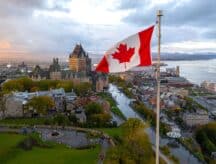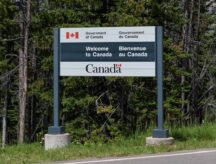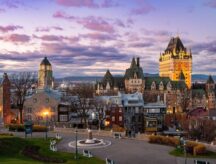How CBSA determines “essential travel” revealed in internal memo
Border officers are on the frontlines enforcing Canada’s travel restrictions, but the particulars of how they determine “essential travel” for specific situations have not been made available to the public.
Canadian Border Services Agency (CBSA) distributes internal instructions to the authorities who get the final say in who crosses the Canadian border. CIC News has obtained a copy of the bulletin that is meant to help border officers decide the outcome of a foreign national trying to enter Canada from the U.S.
Though foreign national family members of Canadians are exempt from the travel ban, they must still demonstrate that they are coming to Canada for a “non-optional” or “non-discretionary” reason, which does not include a family funeral, for example.
Do you have more questions on coronavirus and Canada immigration?
Even if the foreign national is coming to Canada to witness the birth of their first-born child, they still have to demonstrate that they have a plan to isolate themselves for the 14-day quarantine requirement for most in-coming travellers, otherwise, they may be denied entry. If the foreign national was a grandparent of that newborn baby, their reason for travel would not be considered “essential.”
These are some of the nuances that are not immediately evident in the information available on the Immigration, Refugees, and Citizenship Canada (IRCC) webpage. The CBSA’s social media platforms also offer some resources, and you can contact them to ask questions about your individual circumstances.
When you get to the border, you will need to explain to CBSA officers why your trip is essential at this time, during a global pandemic when travelling poses an imminent health risk. You also need to have an adequate plan to quarantine for two weeks, if you are not exempt. Failure to meet these requirements may result in being denied entry to Canada, or having to carry out quarantine in a government-approved facility.
Some of the exemptions to the quarantine requirement are listed in the contents of the CBSA’s internal memo below. This is not the entire memo, which is 28 pages and offers instructions that are oftentimes more relevant to officers than to travellers. It is the list of scenarios used to guide CBSA officers, edited for clarity and length. The “Rationale” column has been transcribed verbatim, except in the case of grammatical errors.
The government’s terms, “non-optional” and “non-discretionary” have been kept to preserve the intended meaning.
Some scenarios were left out if the hypothetical parties involved were able to enter Canada by right, such as First Nations, and Canadians. Cases where foreign nationals had to cross the border due to a natural disaster or a highway closure were also left out of this list; both scenarios would be considered “essential” and therefore a permissible reason to enter Canada.
The scenarios from CBSA’s list have been sorted into the following five categories: family, students, workers, business, and other travellers.
Find out if you are eligible for any Canadian immigration programs
Family
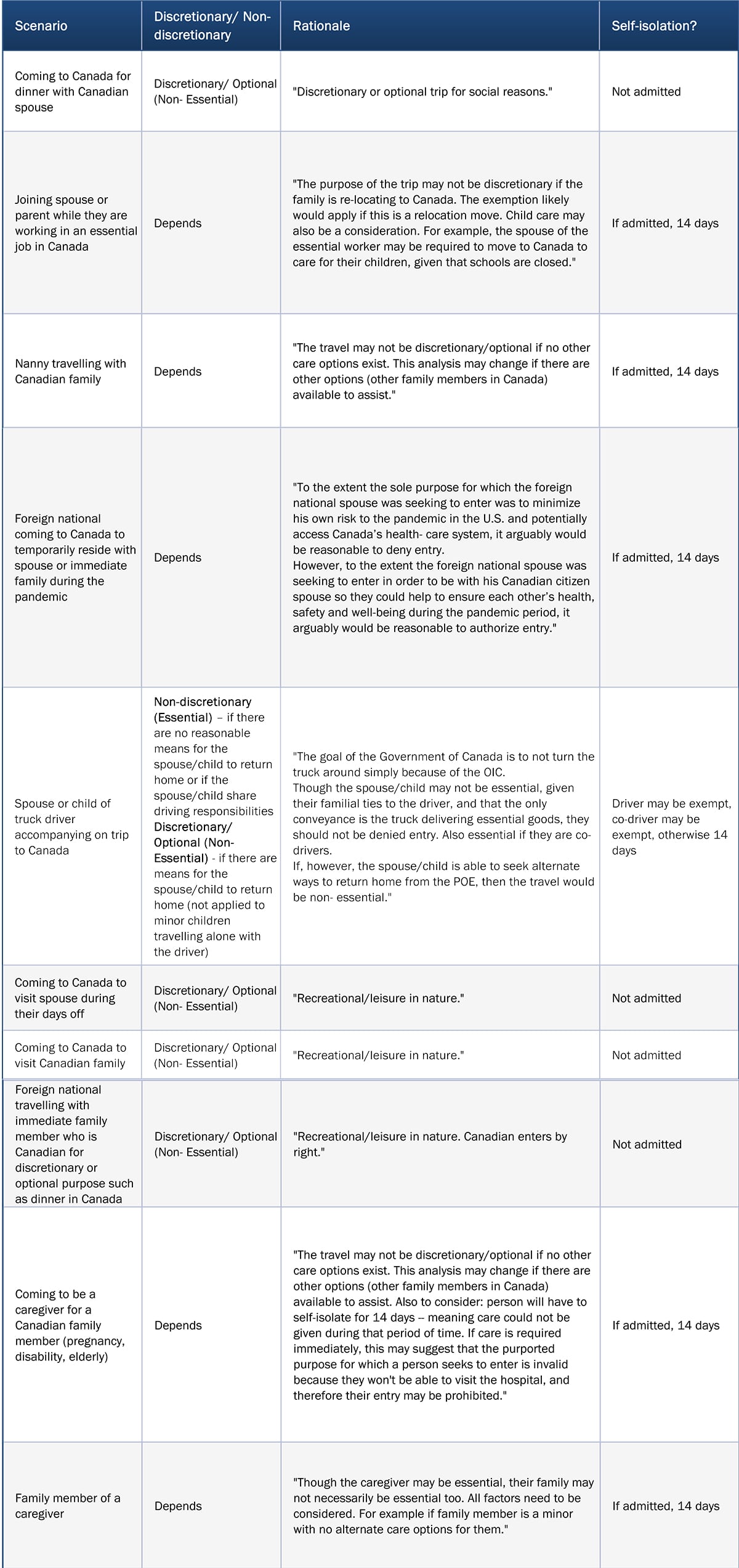
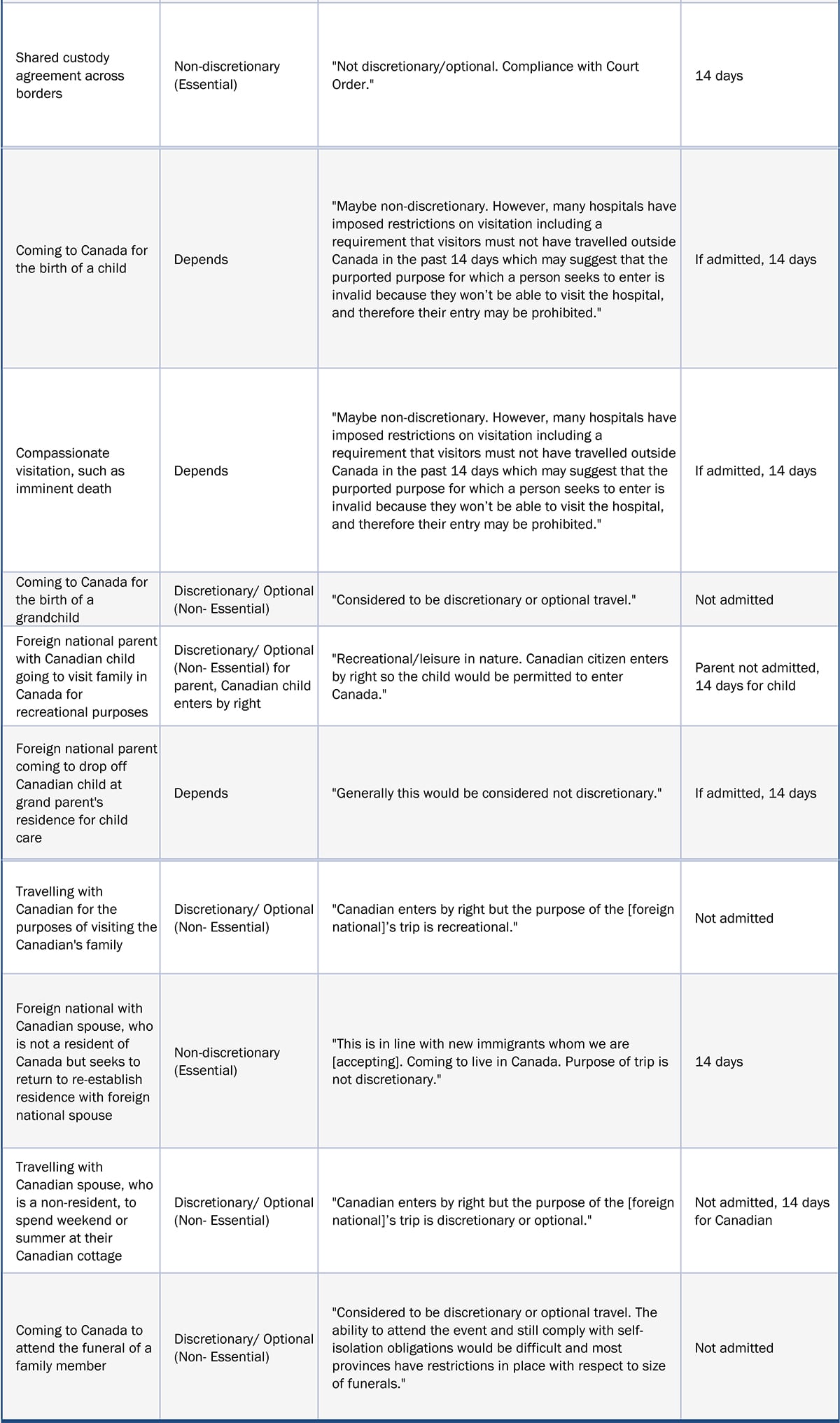
Learn more about Canadian family sponsorship
Students
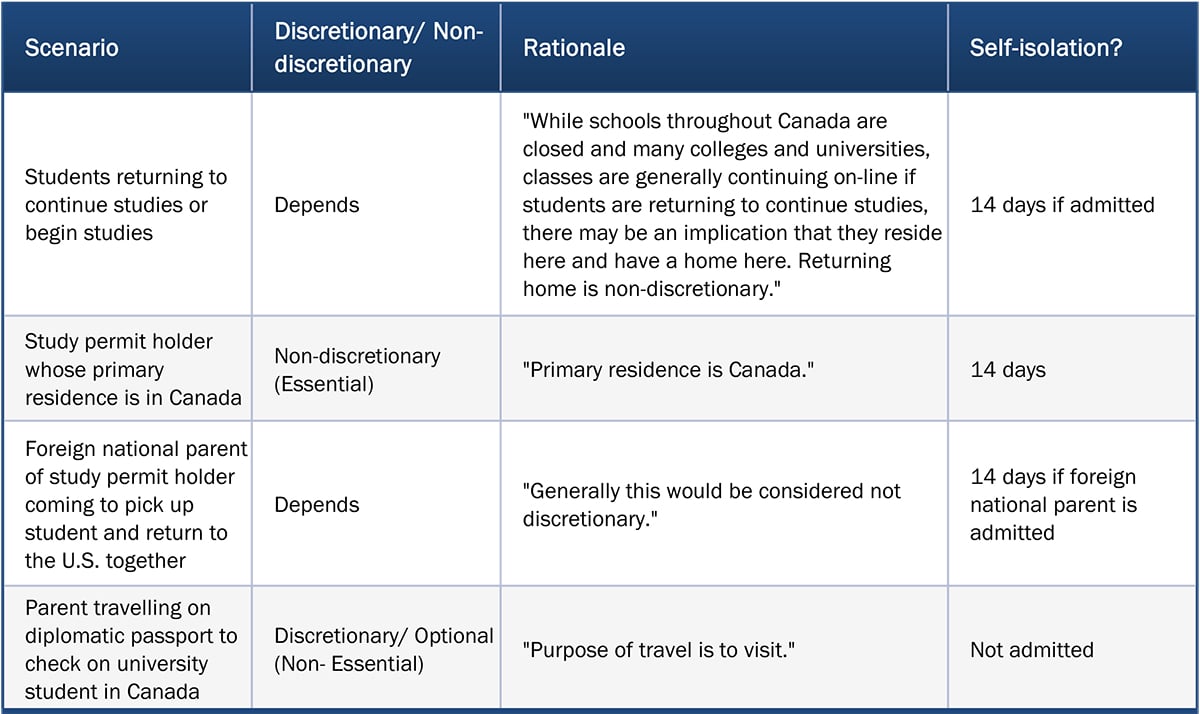
Discover your options to study in Canada
Workers
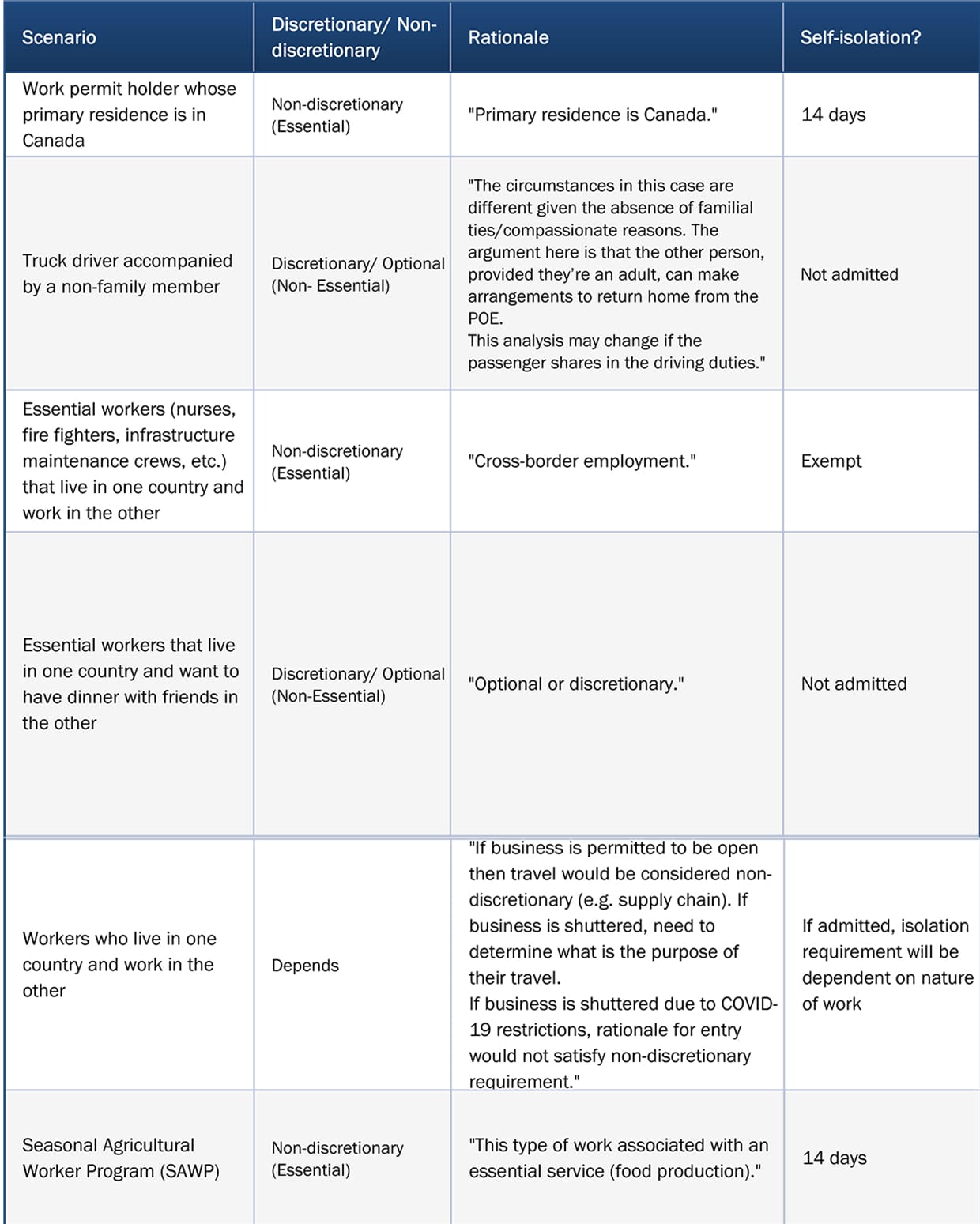
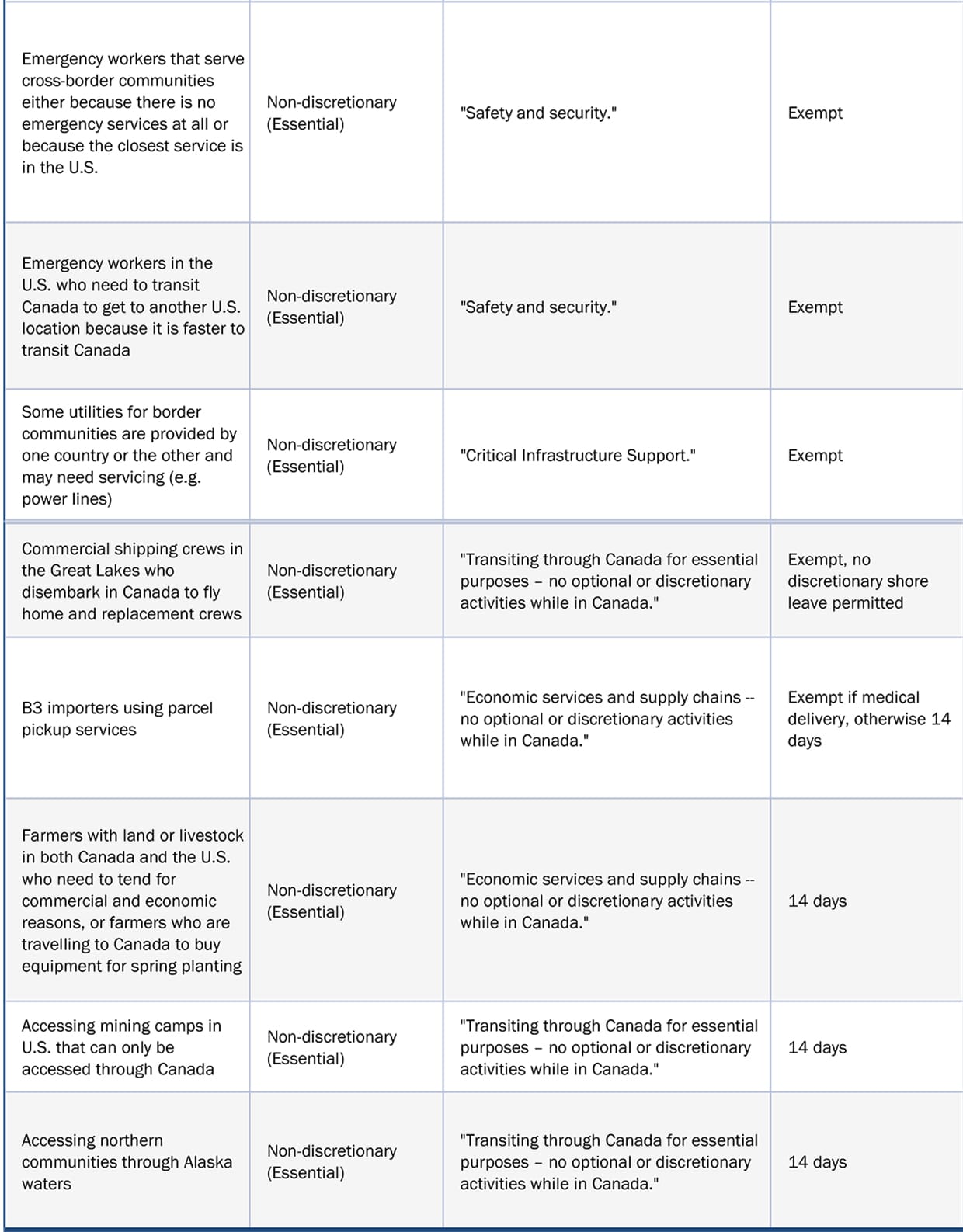
Get help with Canadian work permits
Business owners
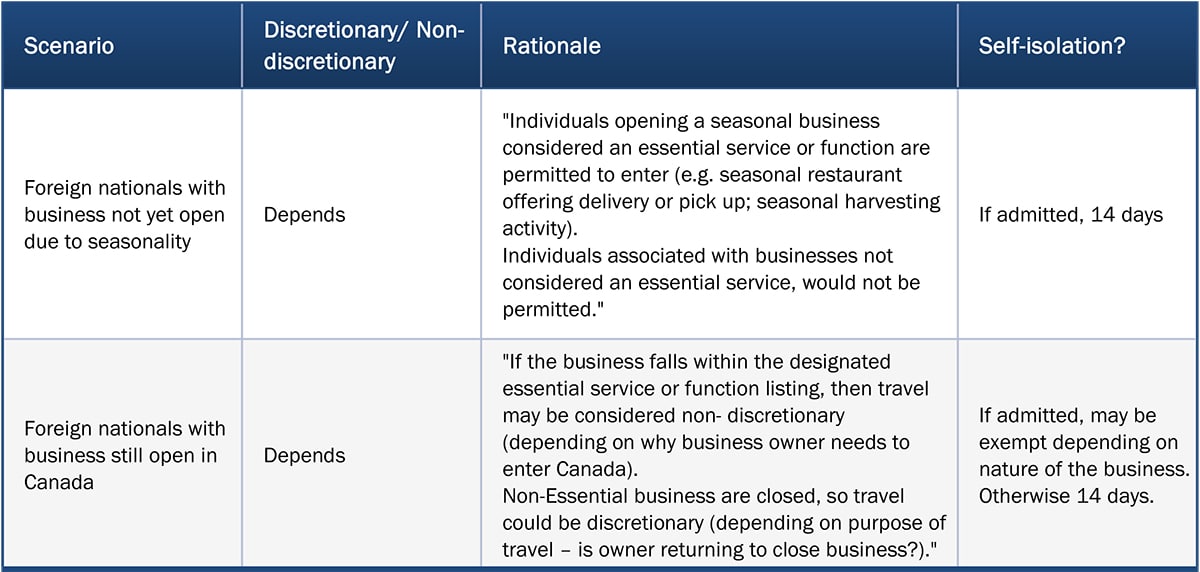
Other travellers
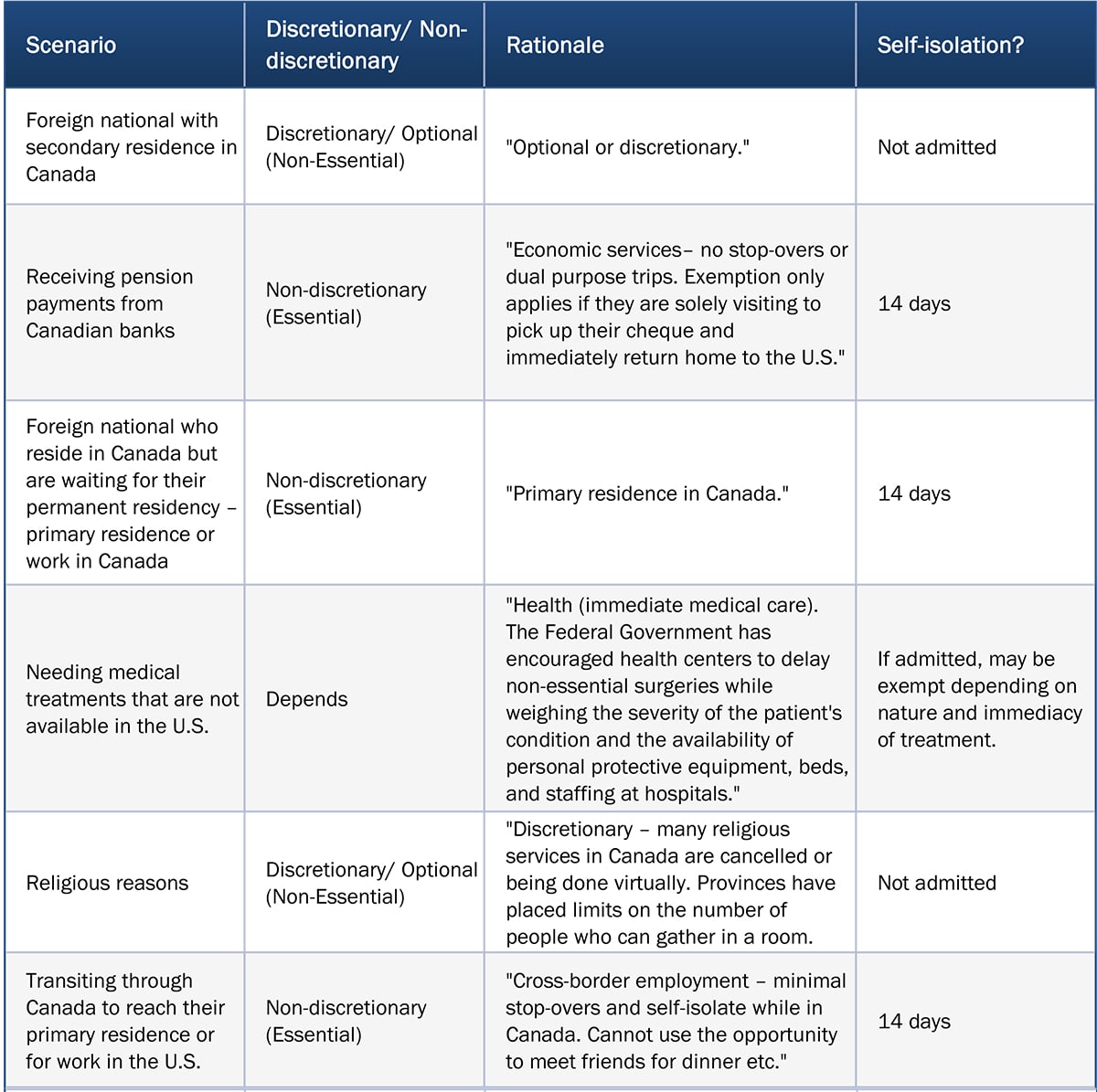
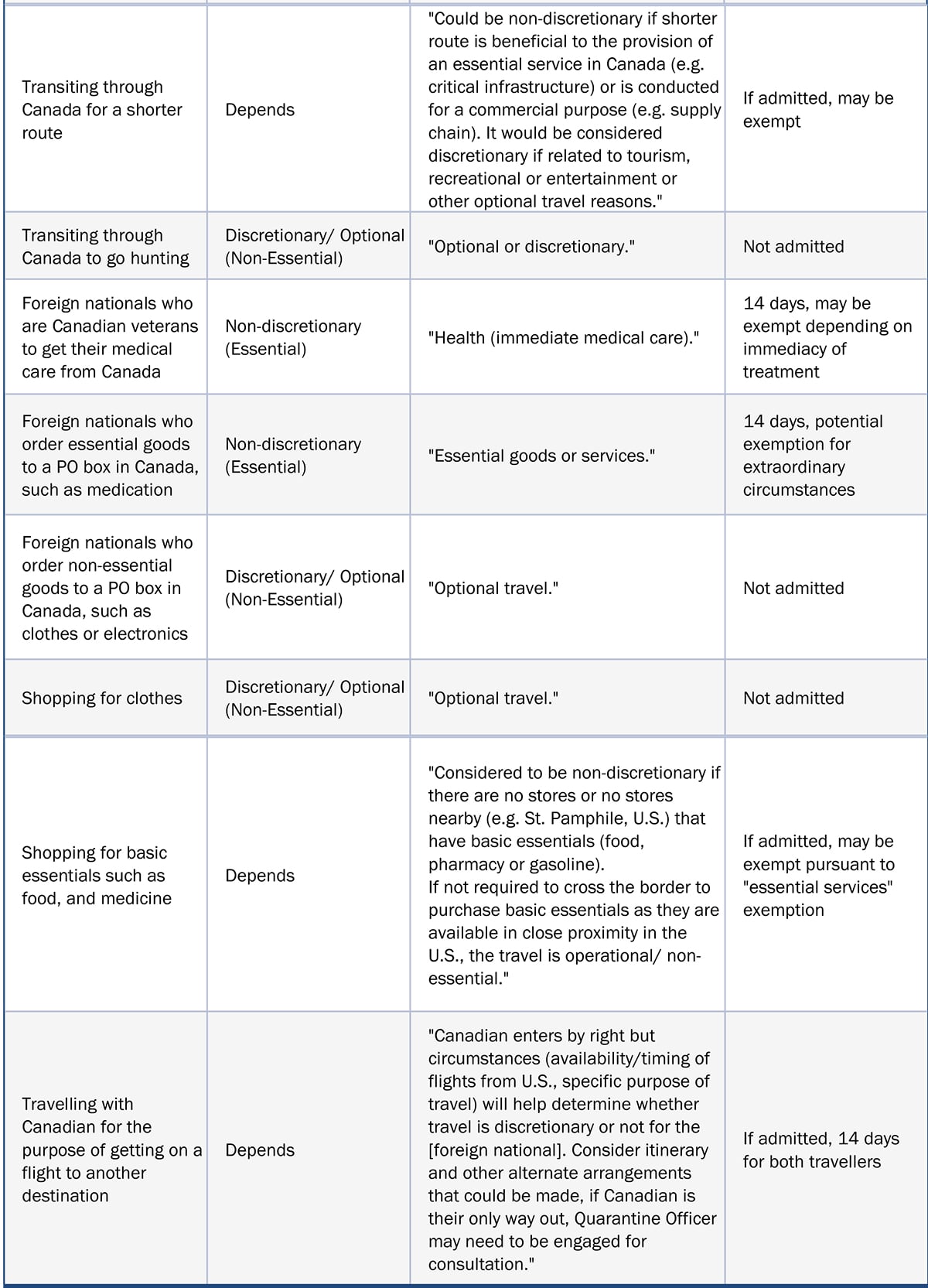
Find out if you are eligible for any Canadian immigration programs
© 2020 CIC News All Rights Reserved
- Do you need Canadian immigration assistance? Contact the Contact Cohen Immigration Law firm by completing our form
- Send us your feedback or your non-legal assistance questions by emailing us at media@canadavisa.com
